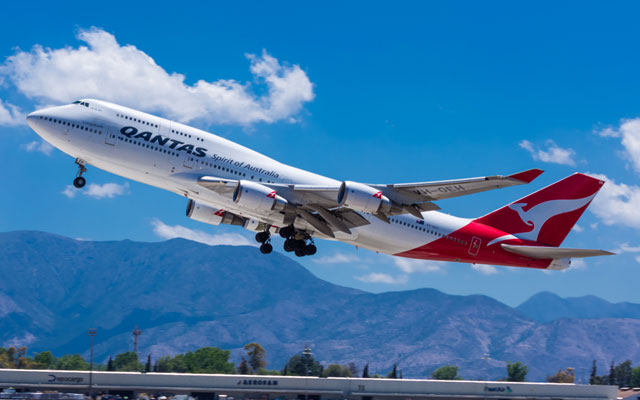Qantas is tapping into sustainable aviation fuel (SAF) supplies in California to help reduce carbon emissions on its flights from San Francisco and Los Angeles to Australia, through a new deal that will see the use of almost 20 million litres of biofuels each year from 2025.
Supplies will come from US-based biofuels company Aemetis. The SAF will be produced at Aemetis’ plant currently under development in Riverbank, California. It will come from certified feedstock from waste products that is then blended with normal jet fuel.

This is Qantas’ second major offshore purchase of SAF, with the first benefitting flights from London since the start of this year.
The airline is pursuing a number of additional SAF deals, and aims to be net carbon neutral by 2050. It will outline an interim target later this month.
Qantas Group CEO Alan Joyce said SAFs were critical to aviation’s transition to a low emissions future.
“Climate change is front of mind for Qantas, our customers, employees and investors, and it is a key focus for us as we move through our recovery from the pandemic,” Joyce said.
“Operating our aircraft with sustainable aviation fuel is the single biggest thing we can do to directly reduce our emissions. We’re actively looking to source sustainable aviation fuel for our operations, and the deal we’re announcing today is hopefully one of many we’ll make as the market catches up to demand globally.”
Joyce explained that the airline is only able to buy sustainable fuels offshore. “The US, the UK and Europe have industries that have developed with a lot of government support because this is a new field and the long term benefits for those countries are obvious,” he stated.
The airline has pumped A$50 million (US$36.4 million) into the development of an SAF industry in Australia, and will be its biggest customer. Joyce said the move would reduce the nation’s dependence on imported fuels.
“For now, SAF is more expensive than traditional fossil fuels but with the right investment it could grow to a scale where the cost is on par,” added Joyce.




















